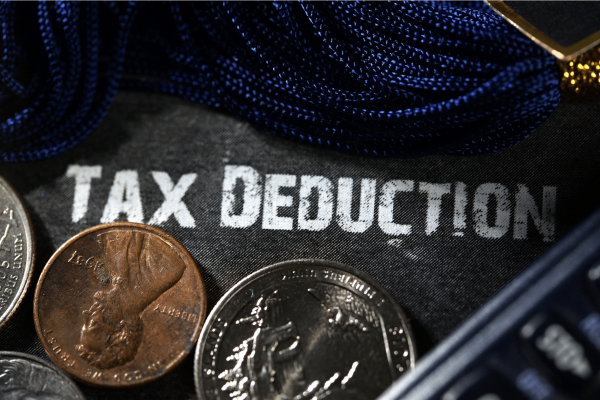Hong Kong Tax on Investment Income
Hong Kong is one of the most attractive places in the world to generate investment income using securities, such as shares, bonds, funds, futures and options. It is also very common for employers and startup to offer stock options and share awards to employees.
As a result, typical questions that may arise are related to i) whether the income/gains derived from those security investments, such as dividends, interests and disposal gains, are subject to any Hong Kong tax at the level of the recipient; and (ii) whether there would be any possible ways to mitigate the tax exposures, if any, in Hong Kong.
Relevant Hong Kong Tax Rules on Investment Income
Under the territorial source system, Hong Kong does not impose profits tax on a person (including a natural person, a company, a partnership and a trustee) if (i) the person does not carry on a trade/business/profession in Hong Kong from which the income is derived; and/or (ii) the person’s income is not arising in or derived from Hong Kong (i.e. not sourced in Hong Kong) pursuant to the general charging provision of the Inland Revenue Ordinance.
Also, Hong Kong does not levy any profits tax on gains arising from sales of capital assets (i.e. gains of capital in nature). As such, even in case a person would be carrying on a trade/business/profession in Hong Kong whereby the gain is sourced from Hong Kong, the gain will still not be taxable in Hong Kong as long as it can be qualified as capital in nature.
In view of the above-mentioned tax rules, investment income/gains can potentially be exempt from Hong Kong tax, but only as long the required conditions can be met.
Not Carrying on a Trade / Business / Profession in Hong Kong?
A company is generally considered as carrying on a trade/business/profession in Hong Kong if it is managed and controlled in Hong Kong, such as BVI company whose directors are residing in Hong Kong.
In practice as well, the Hong Kong Inland Revenue Department (“HK-IRD”) considers a company incorporated in Hong Kong as a company that carries on a trade/business/profession in Hong Kong.
As a result, it is more likely than not that such Hong Kong company, being a recipient of investment income, will be subject to Hong Kong tax (unless such income is satisfied as sourced outside of Hong Kong and/or capital in nature as further discussed in the paragraphs below).
For individuals however, when participating into security investments, different tests apply in order to test whether they carry on a trade or business in Hong Kong. Factors to consider for such individual are, but not limited to:
- His/her motive
- Whether or not the buying and selling of securities can be considered as his/her full time job
- The length of his/her ownership in the securities
- Whether he/she has carried out successive or frequent similar transactions in the past
- Whether he/she is relying on securities trading as the sole or dominant source of his/her income
- His/her reasons for the disposal of the securities.
Consequently, it can be argued that an individual making investments through a broker securities account, a rather popular activity in Hong Kong, is carrying on a trade/business in Hong Kong and that his/her income derived from those investments should be subject to Hong Kong profits tax.
Is the Investment Income Not Sourced in Hong Kong?
As a result of various case law and additional guidelines from the HK-IRD, different tax rules and tests are available for determining the source of the various types of investment income.
For example, in order to determine the source of interest, one may need to consider whether or not the provision of credit test is applicable. For example, if the funds have first been made available by lenders (e.g. bond holders) to borrowers (e.g. bond issuers) outside of Hong Kong, the provision of credit is likely to have taken place outside of Hong Kong, resulting into the interest income of these bonds to be sourced outside of Hong Kong and therefore non-taxable with Hong Kong tax. Please note that this test cannot be applied in all circumstances.
The source of gains from sales of investment securities, are however again subject to a different test. Major considerable factors include, but not limited to,
- Whether or not these securities are listed on a stock exchange
- On which stock exchange these listed securities are being traded
- From where the sale contract and purchase contract of the unlisted securities/securities traded through over-the-counter are being effected.
One has to note that the HK-IRD/the Court may also apply the totality of facts test (i.e. looking at all relevant factors/business activities) in determining the source of interest income and disposal gains. Further, the fact that there is no tax due in Hong Kong does not mean that taxes are not payable in another tax jurisdiction.
Gains of Capital in Nature?
In general, gains from sales of investment securities held for long-term investment purpose can potentially be qualified as capital in nature and thus non-taxable whiles those securities held for short-term trading purpose are trading in nature and taxable.
Again, it is necessary to look at all the relevant facts and circumstances of each case when determining the nature of a gain. The relevant factors include but are not limited to:
- The taxpayer’s intention at the time of acquiring and holding the investment securities
- The length of ownership of the investment securities
- The frequency and regularity of conducting similar transactions
- How the acquisition of the investment securities has been financed
- The reasons of the disposal
- The principal activity of the company (if applicable)
- The classification of the investment securities in the company’s balance sheet (if applicable).
There have been a lot of tax disputes between the HK-IRD and taxpayers on the above-mentioned tax issues, some of which are appealed to the Board of Review (i.e. a tax tribunal) and even to the Court for determination. HKWJ Tax Law & Partners can assist you at any stage of the tax disputes to protect your legal rights and advise you on tax dispute resolution.






